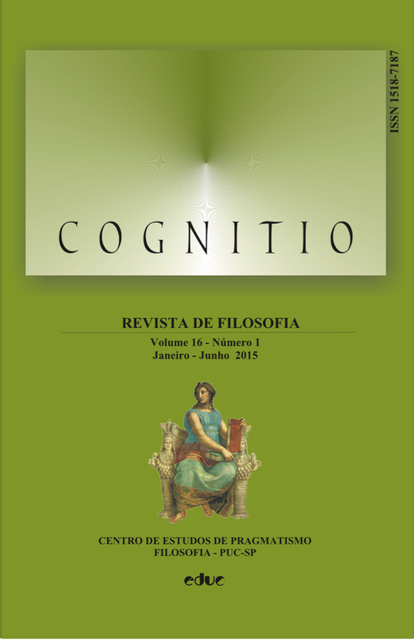The main questions and aims guiding Peirce’s Phenomenology
Keywords:
Phenomenology, Observation, Formal, Categories, Error, Analysis, Measurement, Hypothesis, Abduction, Induction, Scientific methodAbstract
The purpose of this paper is to clarify the main questions and aims guiding Charles Sanders Peirce’s phenomenological inquiries concerning the universal categories. The paper divides into four parts. In the first section, I provide a brief review of the phenomenological categories and I articulate one concern about standard interpretations of the purpose of this kind of phenomenological inquiry. Second, I consider examples drawn from Peirce’s own work in astronomy and the study of gravitational forces, and I offer some reasons for thinking that his philosophical account of the universal categories is modeled in some respects on his understanding of the way scientists should analyze the phenomena that call out for explanation. Third, I provide a brief overview of Peirce’s philosophical account of the scientific method, and I explain the role that his phenomenological theory has in his account of this method of inquiry. Finally, I consider one example drawn from metaphysics that is designed to illustrate the role of phenomenology in philosophical inquiry.Metrics
Metrics Loading ...
Downloads
Additional Files
Published
2015-10-21
How to Cite
Downard, J. B. (2015). The main questions and aims guiding Peirce’s Phenomenology. Cognitio: Revista De Filosofia, 16(1), 87–102. Retrieved from https://revistas.pucsp.br/index.php/cognitiofilosofia/article/view/25188
Issue
Section
Cognitio Papers















